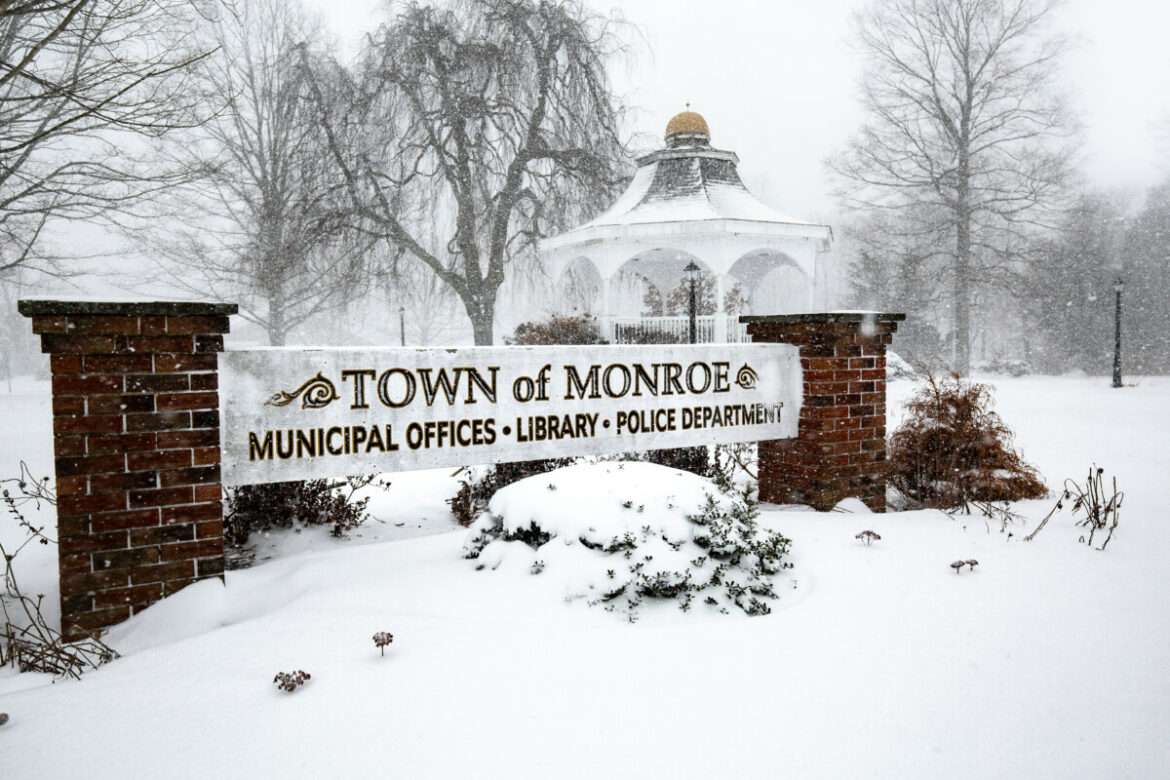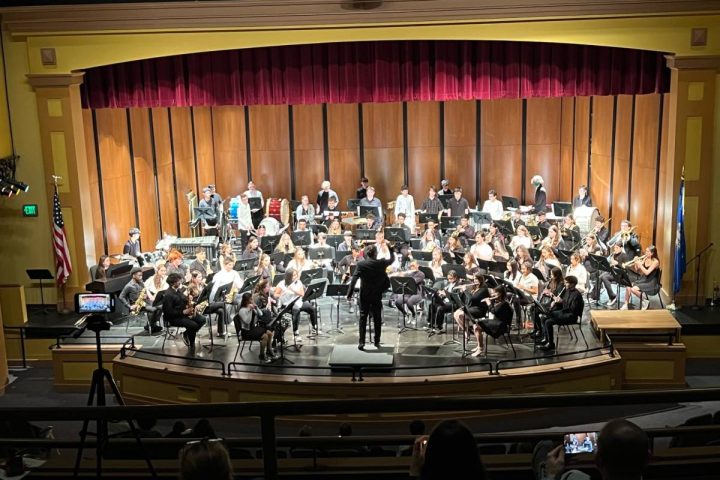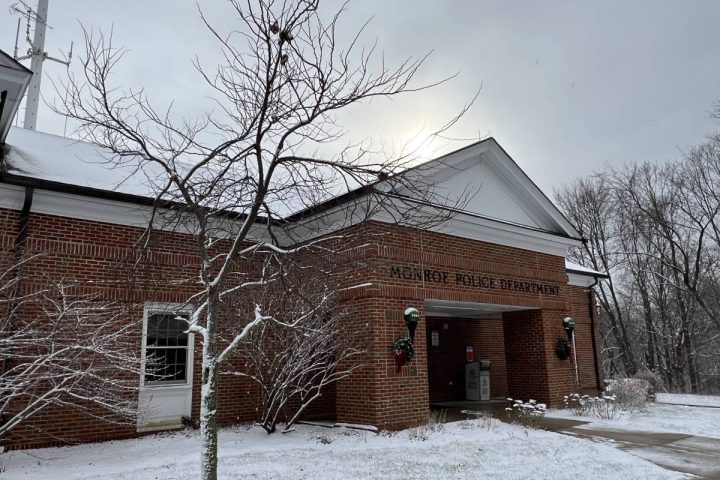MONROE, CT — Fearing a drastic loss of revenue from residents not being able to pay their taxes due to job losses amid the COVID-19 pandemic last year, town officials used a number of one time fixes to keep taxes as low as possible.
But now the bills are due. Aside from annual cost increases for facilities, programs and services for fiscal year 2021-22, town officials will not be able to use $8 million of the unassigned fund balance to offset taxes again, and raises for town and Board of Education employees will no longer be put off.
First Selectman Ken Kellogg’s $91.5 million town budget proposal carries a 3.3 percent tax increase, though town officials hope to reduce that number before voters go to the polls for the May 4 referendum.
During a joint meeting with the Town Council and Board of Finance Thursday night, Board of Finance Chairman Michael Manjos recalled how he said, many times last year, that the tax increase will not be a number everyone is comfortable with.
“I tried to make it clear going in that this was not gonna be an easy year, because we made some cuts last year,” he said. “We pushed some things down the road, that we normally would not have, just to keep a tax rate that was down and at a reasonable level.”
“We are going to be having a bigger increase than we would normally have,” Manjos said. “And I’m going to go on the record and say that. In a normal year, I would probably not get behind some of the numbers I’m looking at. We made some sacrifices last year that we are going to have to make up.”
However, he expressed optimism that preliminary numbers for medical insurance costs and higher than expected state financial aid could help the town tweak the budget and make the tax increase “more palatable.”
Manjos said he is concerned that Monroe’s mill rate is 35.48 mills and said it’s something Board of Finance members will always keep on their radar when deliberating on the budget.
“It’s the most direct effect on taxpayers, so the mill rate is the most important thing from my standpoint,” he said.
Some good news
Last year, the Board of Finance applied $8 million of the unassigned fund balance against the budget to lower the mill rate, which is used to calculate individual tax bills. Manjos said the town had never used that much before, adding it is not something it can do every year.
“The good news is our worst fears as far as collections did not come true,” he said. “Collections are coming in ahead of where we conservatively estimated.”
As a result, Finance Director Ronald Bunovsky Jr. said not all of the $8 million was used for the operating budget.
He said the unassigned fund balance has $6.8 million in it right now, and he expects around $4 million to $4.5 million of the $8 million that was not spent to be rolled back into the account.
Bond rating agencies like Moody’s look favorably upon municipalities with healthy unassigned fund balances, so town officials want to build Monroe’s back up.
The first selectman is proposing to use $3 million of the unassigned fund balance to offset a tax increase for 2021-22. Manjos noted how Kellogg also made a proposal on how to use the fund balance going forward, which Manjos called “a good starting point.”
“The fund balance is not something we can live on forever,” he said. “There will be a time when we have to get off of this, hopefully sooner rather than later.”
Manjos noted how the real estate market has been on the rise in Monroe again, as new families move into town. “That may not affect us immediately, but down the road that will hopefully help us manage the mill rate,” he said.
Town Council Vice Chairman Sean O’Rourke asked about the breakdown of grand list, which is a listing of all of the town’s taxable property.
Kellogg said the grand list had an overall increase of $16.6 million, which is built into his budget proposal. He said every category went up, from residential, commercial and personal property values to motor vehicles. The only decrease was for vacant land.
The first selectman said motor vehicle values will change because of the usual fluctuation from vehicle sales, and some assessment appeals from the last revaluation are still pending.
Assigning priorities
The Town Council will have budget workshops before it acts on the municipal budget. Then the Board of Finance will review the entire town budget, with municipal and education spending, before approving a final budget for the referendum.
When it comes to doing a deep dive into town departments and personnel, Manjos said it should be up to the first selectman and Town Council to guide those priorities.
“Ken has a great operational plan,” Manjos said of Kellogg. “I think our job on the Board of Finance is to figure out how to fund it, not how to operate.”
He said the Board of Finance will focus on the financial side, including revenues, the fund balance and what taxpayers can afford.
The Board of Finance will be in constant contact with the Board of Education on its budget and Superintendent of Schools Joseph Kobza and Bunovsky have been providing open communication with the finance board, according to Manjos.
The town did not spend a lot of money on capital projects last year, but now officials plan to get some projects underway.
“Roads are always a big discussion,” Manjos said. “There are plenty of projects on the agenda. What I will look for from the Town Council is direction and priorities.”
Manjos said the finance board will try to keep debt service flat. “I don’t mind taking on debt,” he added. “I think we constantly need to improve the town. But we have to make sure the math works out. The prioritization must come from Ken and the Town Council.”
Among the capital projects, Kellogg recommends spending $3 million to improve the town’s roads, using $1 million of approved bonding that was not bonded for during the pandemic, a $470,000 road grant, $530,000 from operating expenses, and a 2022 bond appropriation of $1 million.
Steve Kirsch, a Board of Finance member, asked when the town will do another study on the condition of Monroe’s roads. Kellogg said the studies are done every four years and the next one will be in 2022.
Kirsch also asked who will evaluate the Board of Education’s capital project requests. Manjos said the Board of Finance does that, with the school board identifying its priorities.







Is that the reason, late fees on dog license renewals almost double the fee, female spayed is $8 + $7 = $15 during these tough times? Sounds more like a ‘let’s get all we can in a money grab’ to me! IMHO.